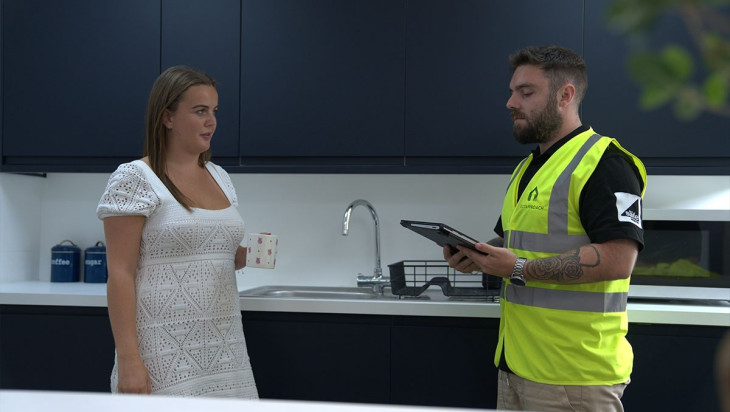
The use of gas appliances rises notably in cold weather, as boilers and heating systems are used more. In winter, the inhabitants depend on these appliances to keep the house comfortable and warm, especially where children and elderly people live. Gas is a convenient and efficient source of energy, but it also poses safety hazards that should be taken seriously. Do not ignore any warning signs and always schedule regular maintenance to avoid hazardous situations that could lead to serious risks.
Carbon monoxide poisoning, gas leaks, and fire breaks are among the situations that can arise if you ignore warning signs. Taking care of gas safety is important for your family's safety and for protecting your property from fire. A well-maintained gas system offers many benefits, including lower energy bills, smooth operation without problems, and no worries about mishaps, especially during winter when use is higher.
Winters bring cold temperatures; in turn, demand for hot water and heating increases. These things help to maintain a comfortable environment, but if not properly maintained, then serious, dangerous situations can arise. It is important to schedule regular servicing of boilers, stoves, and heating systems so minor faults can be addressed promptly. Carbon monoxide poisoning is one of the frequent hazardous situations that can arise from faulty gas appliances. It is a colorless and odorless gas, making it nearly impossible to detect.
During the winter season, another major concern is blocked flues and vents, which can be caused by snow or debris accumulation. This blockage leads to improper ventilation. Other than that, damaged or frozen pipes can disrupt gas flow, posing safety issues. It is observed that gas-related incidents occur more in winter; thus, it is important to take preventive measures before the onset of cold weather. These measures help ensure that appliances run smoothly, saving energy costs and preventing accidents. Make sure to follow a proper checklist to detect faults early and avoid risks.

It is crucial to prepare your home for winter beforehand so you have peace of mind during the season. Following is a checklist that can help you maintain your home warm and avoid gas safety risks:
Cold weather comes with its own challenges. It is essential to understand these safety considerations to protect your property and family from dangerous situations:
There can be the risk of emergencies even after careful inspection, so one should know what to do in these situations. The following are some points that can be kept in mind if a situation like this arises:
It is important to ensure that gas appliances are properly maintained before winter, as their use increases. The risk of hazardous situations can be significantly reduced by ensuring that appliances are inspected and maintained, and that winter precautions have been taken. Regular maintenance of the appliances keeps the heating systems in top condition and helps prolong their lifespans. Energy costs are reduced, and efficiency improves.
In colder months, a warm, comfortable environment is required, which is achieved through heating systems. Thus, ensuring the safety of the heating system is essential. Keep in mind to have an emergency plan as well for your family's safety. Gas safety should be considered important in winter for your own peace of mind.
Ans: It is suggested to schedule the boiler servicing annually. A registered gas safety engineer should carry out servicing, as they can provide more detailed information on any required maintenance. It also improves the boiler's efficiency.
Ans: There are some notable signs, like a foul smell or a hissing sound, that you can observe, but it is not safe to locate leaks using any devices. It is best to call the professional immediately.
Ans: When there is a gas leak, it can be detected by smell. Carbon monoxide, on the other hand, is odorless and colorless and can be detected by CO alarms. It needs immediate evacuation from that place.
Ans: No. Not at all. There should be proper ventilation in the room if using gas heaters, so there is no buildup of carbon monoxide. Otherwise, use appliances designed for closed spaces.
Ans: Immediately leave that place. Do not try to use any electrical switches and contact emergency services. Do not enter the premises till it is declared safe.
Ans: Yes. You can observe the signs clearly, such as soot buildup, orange or yellow flames, issues with lighting the pilot, or unusual noises. These indicate there may be issues; therefore, contact the gas safety engineers to identify the root cause.
Ans: Of course, it affects the ventilation, which can, as a result, lead to the accumulation of carbon monoxide. Thus, it is important to regularly clear chimneys and flues.
Fill the required information to order a gas safety certificate instantly.
Are you curious about your Gas Safety Certificate? With these simple steps, learn how to check its status and ensure your peace of mind.
Find out why your boiler is vibrating loudly. Explore causes, troubleshooting tips, and the importance of prompt repairs for a quiet and efficient heating system at home.
Gas engineers perform a gas safety check to ensure your gas appliances are safe. Read to learn what more you can expect from the gas safety check.
Learn about the importance of gas safety certificates for landlords and the legal consequences of not having a valid certificate.
Know your tenant rights: How long can a UK landlord leave you without hot water? Stay informed, assert your rights.
Every landlord in the UK is legally bound to follow gas safety regulations as per the Gas Safety (Installations and Use) Regulations 1998.
Fill out the following enquiry form and we will contact you as soon as possible.